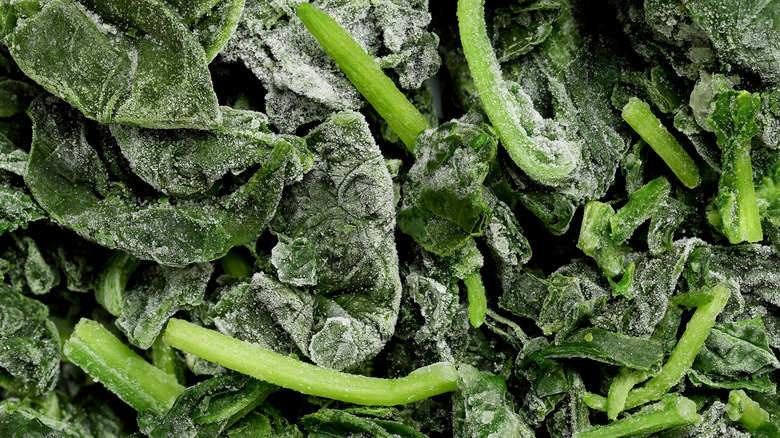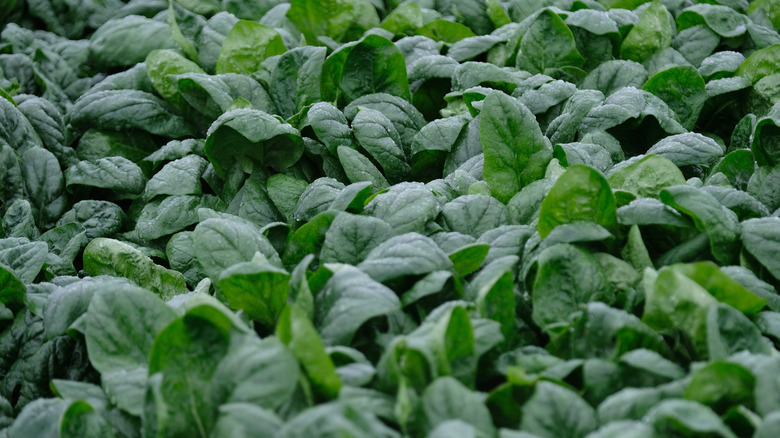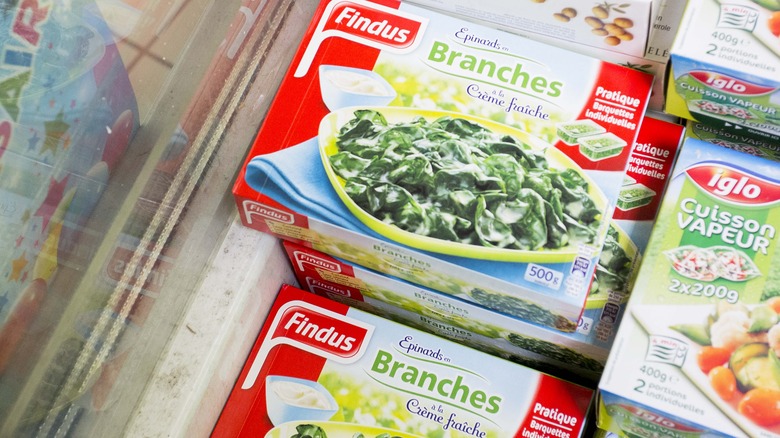Your Fridge Will Thank You For Choosing Frozen Spinach
Frozen food has long gotten a bad rap. Synonymous with TV dinners, divorced dads, or college students living off of Trader Joe's, it's not exactly at the top of most people's list of go-to kitchen staples.
But frozen spinach can be an absolute game changer if you're willing to take a chance on it. Because it wilts when cooked, frozen spinach doesn't run into the same textural discrepancies as frozen broccoli or okra, which can get soggy and mushy.
It's also a great source of nutrients, especially in communities where fresh produce isn't as readily available. Spinach contains protein, iron, folic acid, calcium, and Vitamins A, B, C, and K. It has antioxidant properties, and might even be good for your eyes. It also reduces waste if you think about all the fresh spinach that has gone bad in your fridge — while taking up a lot of valuable real estate.
Frozen spinach is healthy, affordable, and accessible, and it deserves your attention.
Why you should eat frozen spinach
First off, in this economy, you gotta be thrifty. And fresh spinach can be expensive, especially if you live in a major city in the throes of unregulated inflation. Plus, everyone knows the experience of putting an entire bag of spinach in a pan and watching it shrink into nothingness before your eyes. Because frozen spinach is already cooked, it doesn't shrink, and it tends to be way cheaper than fresh spinach. You're also getting a lot more in a smaller package. A 10 oz bag of frozen spinach is equivalent to an entire pound (16 oz) of fresh spinach, which cooks down to approximately one and a half cups.
Because it's more condensed, frozen spinach takes up less room in your freezer and frees up extra fridge space. It also lasts far longer than fresh spinach. Fresh spinach can allegedly stay fresh for up to ten days, but if you don't have a reliable produce section at your grocery store, it could start to go bad in a couple of days. Frozen spinach, on the other hand, can stay good in your freezer for up to a year.
How to use frozen spinach
When using frozen spinach, stick to recipes that have a lot of other ingredients going on. Slipped into a pasta dish or a blended sauce (for example, in a saag paneer), no one would be the wiser that it's not fresh, but if served on its own, even sauteed with garlic and olive oil, it won't taste quite as good as fresh spinach. To prevent your frozen spinach from getting watery once cooked, let it thaw and squeeze out the excess water before you add it to your dish.
It's great for last-minute dinner prep, since it lasts a long time and cooks super fast. If you keep dried or canned beans, dried grains, or some frozen meat or poultry on hand, frozen spinach will round out your pantry for easy no-prep dishes like a Bell Pepper and Spinach Stromboli, Spinach Artichoke Balls, or Spinach Pesto Pasta with Chicken.



